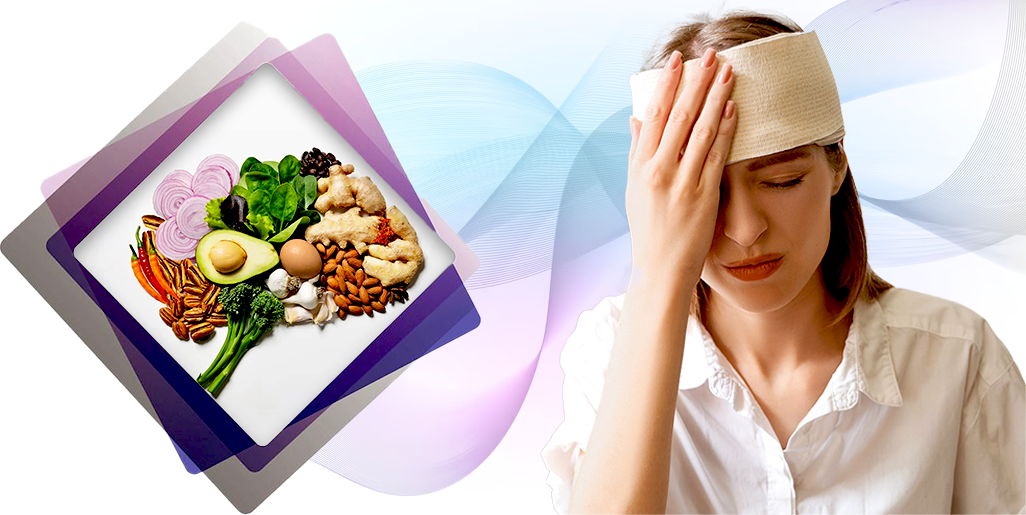Make An Appointment
For emergency Case
Booking A visit
Nourishing the Brain with a Healthy Diet
A brain injury is actually a very serious condition caused by either traumatic or non-traumatic reasons, which has a great impact on one’s physical, cognitive, and emotional health. There are two major types of brain injuries, namely: (TBI) traumatic brain injury as it is caused by some form of external force, blow, or jolt hitting the head; and (ABI) acquired brain injury brought about by an inner cause, such as stroke, infections, or lack of oxygen. Both can cause symptoms that vary from minimal to extreme, for instance, memory and energy loss, inability to focus, pains in the head, and even immobility in the physical sense. These symptoms can impede the daily life of the victim and require comprehensive care and support for maximum improvement.
Brain injuries can be inflicted in many ways because there are multiple causes. For example, accidents, falls, sports injuries, aneurysms, infections, and so much more. While conventional treatments would form a key part of recovery, advanced medical research also introduced promising approaches in the form of stem cell therapy.
Stem cell therapy works to regenerate damaged brain cells, promote neurogenesis, and protect existing cells from the further decline of brain function. As a cutting-edge treatment, stem cell therapy has given hope to better brain function and recovery besides a specifically designed diet and lifestyle changes. For the treatment, Global Stem Cell Care provides specific consultancy to those who will opt for this option to help them through personalized stem cell treatment plans that enhance healing in the brain and quality of life.
Dietary Guidelines for Recovery after Brain Injury
Eating a healthy, balanced diet that is rich in nutrients is absolutely important during recovery after brain injury to promote the healing process of the brain and general health improvement. Here are some foods to eat and avoid.
What to Consume
Healthy Fats
Salmon, flaxseed, walnuts, and chia seeds are rich in essential omega-3 fatty acids that can provide critical brain health. Healthy fats will help in reducing inflammation, activating cell repair, and stimulating cognitive function, all of which together may help you make a great recovery from brain injuries.
Antioxidant-Rich Foods
Antioxidant-rich foods, containing berries, spinach, and dark chocolate, protect the brain against oxidative stress, which makes the symptoms of injury worse. Antioxidants boost cell regeneration and make the brain more fit and healthy.
Lean Proteins
Protein supports muscle repair and functions of neurotransmitters, both crucial elements after a brain injury. The addition of lean proteins, such as chicken, eggs, and legumes, helps keep the energy levels up and rebuilds cells.
Whole Grains
The complex carbohydrates present in whole grains like oats, quinoa, and brown rice help build up gradual energy so that one can concentrate and work well mentally. They are also sources of B vitamins connected with brain health and mood management.
Leafy Greens
It contains many nutrient-rich materials, such as folate and magnesium. These are readily found in dark leafy greens like spinach, kale, and broccoli. These nutrients help the neurons while reducing the inflammation present in the brain.
Hydrating Fluids
Hydration helps keep the head clear and ensures a running good brain. Water, herbal teas, and high-electrolyte beverages can replenish levels of hydration while trying to avoid fatigue.
What to Avoid
Processed and Sugary Foods
Highly processed and sugary foods contain plenty of added sugars, chemicals, and artificial ingredients, leading to inflammation and disruption in energy. Avoid these processed snacks, sugary drinks, and sweets that may inhibit brain recovery and exacerbate fatigue.
Trans Fats
These bring along trans fats in fried and commercially baked products, which break down brain cell functions and lead to a high level of inflammation. Healthy fats come from nuts, seeds, and olive oil.
Too Much Caffeine
While a little bit of caffeine is actually a stimulant to wakefulness, too much will exacerbate anxiety, disrupt sleep patterns, and promote dehydration. Limit intake and instead use hydrating fluids.
High-Sodium Foods
Too much sodium elevates blood pressure, a major risk factor for poor brain health. Limit processed meats, canned soups, and salty snacks.
Alcohol
Alcohol also disrupts the brain’s chemistry and may negatively affect healing due to inflammation and dehydration. Generally, avoid alcohol at all costs, but especially during the sensitive phases of the healing period of your brain.
Artificial Sweeteners
Some of the newest research discovers that artificial sweeteners do affect the brain negatively. Choose natural sugar substitutes, such as honey or fruits, only in moderate quantities.
